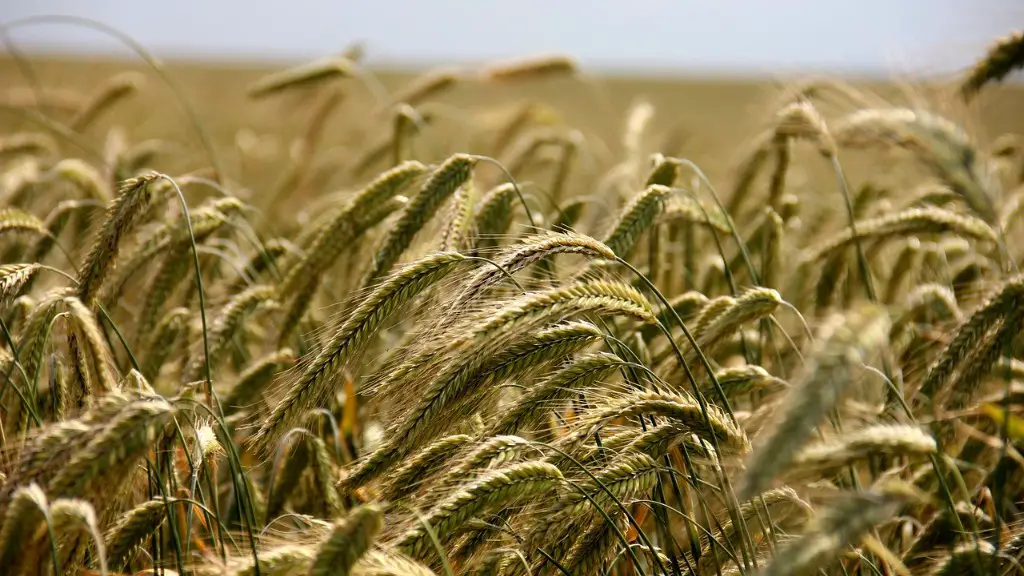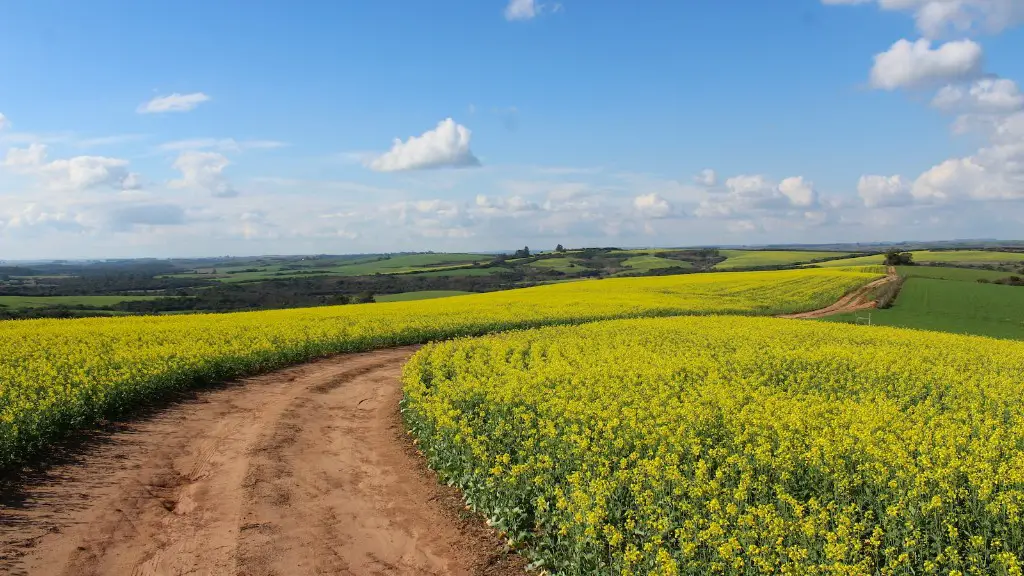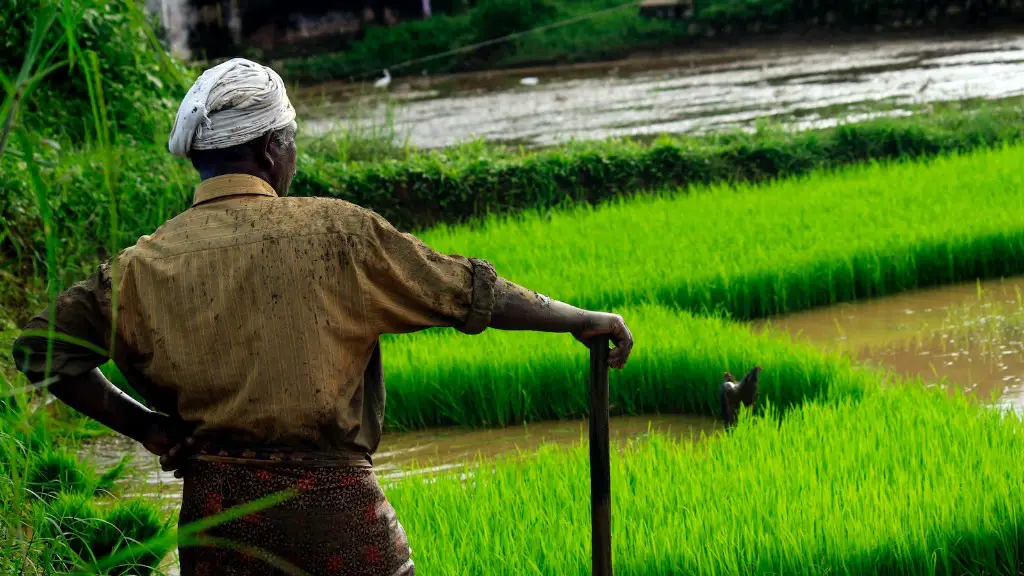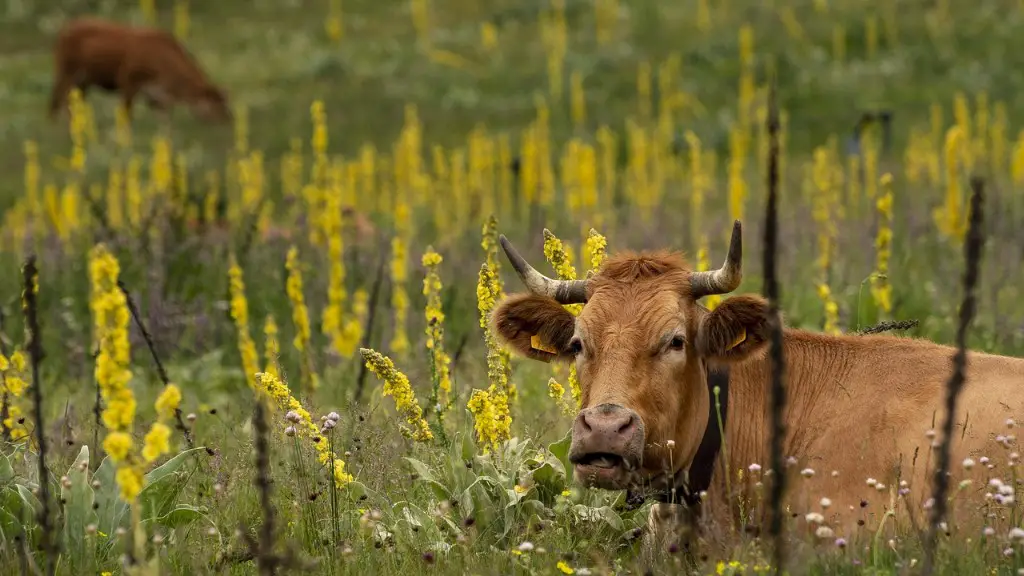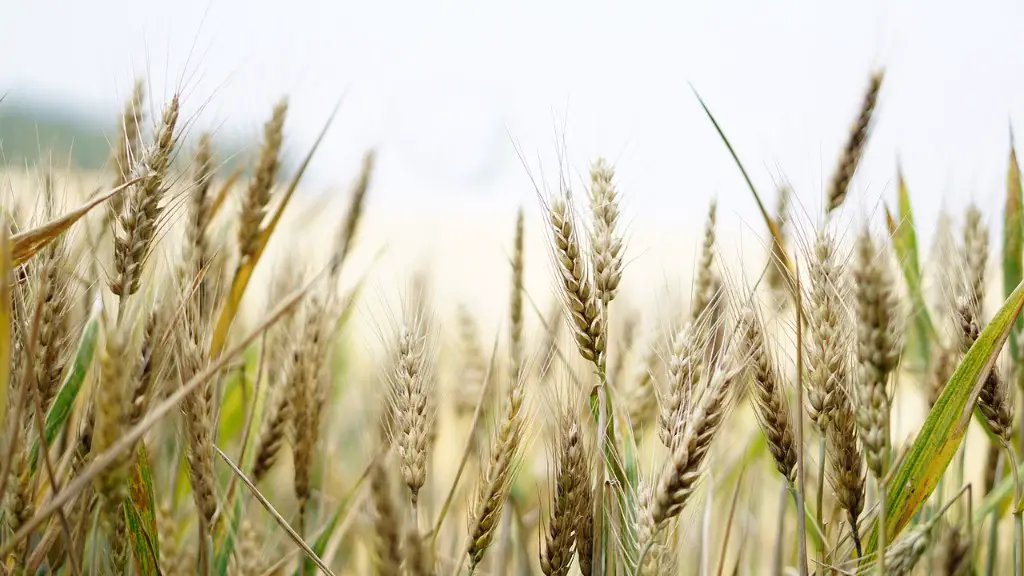The Agricultural Revolution began in the 18th century and ended in the 19th century. It was a period of time when new technologies and practices were introduced which improved agricultural productivity and raised the standard of living for farmers. One of the most important innovations of the Agricultural Revolution was the use of machines such as the cotton gin and the thresher. These machines increased the efficiency of agriculture and allowed farmers to produce more food in less time. The Agricultural Revolution also saw the development of new crop strains that were more resistant to disease and pests. This led to higher yields and allowed farmers to meet the demands of a growing population.
The relationship between industrialization and agriculture is a complex one. On the one hand, industrialization can lead to greater efficiency in agriculture, resulting in increased production and higher incomes for farmers. On the other hand, industrialization can lead to a decline in the demand for agricultural products, as people move to urban areas and consume more processed and manufactured goods. Industrialization can also lead to environmental degradation, as more farms adopt intensive production practices and use more chemical inputs.
Was agriculture affected by the Industrial Revolution?
The Industrial Revolution was a changing point for many aspects of human life and the overall standard of living. Agriculture changed as well during this time as technology, such as the seed drill and the Dutch plough, was able to increase human productivity and led to higher outputs of food. This increased productivity led to a higher standard of living for many people during the Industrial Revolution.
The Second Agricultural Revolution was a period of time during which humans began to industrialize farming in order to produce greater crop yields with fewer workers. This period of time paved the way for the First Industrial Revolution, as it allowed for the formation of larger cities.
What was a negative effect of the Industrial Revolution on agriculture
The industrial farming model has caused extensive damage to farmland and rural development. These farms do not support the diversity of life that other farms do, resulting in a loss of ecosystem services such as pollination. This has had a negative impact on the land and the people who rely on it for their livelihoods.
The large-scale, conventional farming system is not sustainable in the long term. It contributes to climate change, pollutes air and water, and depletes soil fertility. This system of farming needs to be changed in order to protect our environment and ensure food security in the future.
What is the relationship between agriculture and the Industrial Revolution?
The Agricultural Revolution was a time of great change for farmers and agricultural workers. New technology and practices led to increased productivity and efficiency, which in turn led to the decline of the agricultural share of the labor force. This decline added to the urban workforce on which industrialization depended, making the Agricultural Revolution a key cause of the Industrial Revolution.
Industrial agriculture has both its pros and cons, but ultimately it is up to the individual to decide whether the pros or cons outweigh each other. On the pro side, industrial agriculture can increase food production, which is beneficial in a world where the population is ever-growing. On the con side, however, industrial agriculture increases the risk of animal cruelty. This is because animals on these farms are often confined to small spaces and given little to no opportunity to exercise or socialize, which can lead to physical and mental health problems. Ultimately, it is up to the individual to decide whether the pros or cons of industrial agriculture outweigh each other.
What are 5 negative effects of industrialization?
The industrial revolution had many negative effects on workers. They had to work in horrible conditions, with poor nutrition and a stressful, unsatisfying lifestyle. The workplaces were also dangerous, and there were no safety regulations. Child labor was common, and women were discriminated against. The environment was also harmed by the industrial revolution.
Industrial agriculture has had a profound impact on both human society and the environment. On the one hand, it has substantially increased global agricultural productivity, leading to much more food for a growing human population. On the other hand, it has also had major negative impacts on the environment, many of which are harmful. In terms of human society, industrial agriculture has led to the development of large-scale factory farms and the use of harmful chemicals and pesticides. It has also resulted in the displacement of small farmers and the loss of biodiversity. In terms of the environment, industrial agriculture has caused soil erosion, water pollution, and the depletion of groundwater resources. It has also contributed to climate change through the release of greenhouse gases.
When did agriculture become industrialized
Modern industrial agriculture has played a major role in increasing the yields of crops and providing food for growing human populations. The use of fossil fuel energy, mechanization, and advanced crop breeding methods has helped to increase crop yields and improve the quality of food.
The main benefits of industrial farming are that it can produce food on a large scale at a relatively low cost. This allows companies to sell their products for cheaper prices, which can help to make food more affordable for consumers. Additionally, industrial farms often use modern techniques and equipment that can help to improve efficiency and reduce operating costs.
What are some problems with industrial agriculture?
Industrial agriculture has had a profound impact on the environment, both in terms of the resources it consumes and the pollution it generates. It is a leading cause of human-related emissions of greenhouse gases, a major source of water and air pollution, and the principal cause of antibiotic resistance and pesticide toxicity.
The heavy reliance on fossil fuels, synthetic fertilizers, and pesticides in industrial agriculture has contributed to a significant increase in greenhouse gas emissions. Agriculture is responsible for about 10% of global greenhouse gas emissions, and industrial agriculture accounts for a significant portion of that.
water pollution. Industrial agriculture is a leading source of water pollution, due to the heavy use of chemicals and the discharge of animal waste into waterways. These pollutants can contaminate drinking water and harm aquatic ecosystems.
Air pollution is another major concern. Agricultural production emits a variety of pollutants, including ammonia, particulate matter, and volatile organic compounds. These pollutants can contribute to smog, acid rain, and other environmental problems.
The widespread use of antibiotics in industrial agriculture has led to the development of antibiotic-resistant bacteria. These bacteria can cause serious human illnesses, and the overuse of antibiotics in agriculture is a major contributing factor.
Pesticides are another area of concern
The methods of industrial agriculture have led to impressive increases in crop yields and farm productivity. However, these methods have also come under criticism for their negative environmental and social impacts.
What is industrial agriculture in simple words
Industrial agriculture is the large-scale, intensive production of crops and animals, often involving chemical fertilizers on crops or the routine, harmful use of antibiotics in animals (as a way to compensate for filthy conditions, even when the animals are not sick). This type of agriculture is extremely detrimental to the environment, as it often involves the use of harmful chemicals and can lead to soil and water pollution. Additionally, industrial agriculture is often associated with inhumane treatment of animals, as they are often kept in cramped, dirty conditions.
Industrialization has definitely had a positive impact on the economy, but it has also had some negative consequences. One of the biggest problems is the increase in population, which has put a strain on the planet’s resources. Additionally, urbanization has resulted in more pollution and obvious stress on the environment.
What were 3 effects of industrialization?
The Industrial Revolution was a period of time in the late 18th and early 19th centuries when many advances in technology and manufacturing occurred. This shift from an agrarian economy to a manufacturing economy led to increased production and efficiency, lower prices, more goods, improved wages, and migration from rural areas to urban areas. The Industrial Revolution is considered one of the most important periods in history and its effects are still felt today.
The Industrial Revolution was a time of great change for the world. One of the biggest changes was the rapid urbanization that took place. This was caused by many factors, such as changes in farming, population growth, and the demand for workers. This led to many people moving from rural areas to cities. In some cases, small towns near coal or iron mines grew into huge cities almost overnight. This was a time of great progress, but also of great challenges.
Warp Up
Industrialization leads to increased productivity through mechanization and the use of technology, which leads to increased efficiency and output. This increased productivity affects agriculture by making it possible to produce more food with less labor, which in turn can lead to lower food prices. Additionally, industrialization can lead to new methods of agriculture, such as factory farming, which can have both positive and negative effects on the environment and on the quality of food.
In general, industrialization has had a negative effect on agriculture. It has led to the development of large scale farms that are efficient but also require a lot of land and resources. This has resulted in the loss of small farms and the displacement of farmers. Additionally, industrialization has led to the use of more chemicals and technology in agriculture, which has had an impact on the environment.
